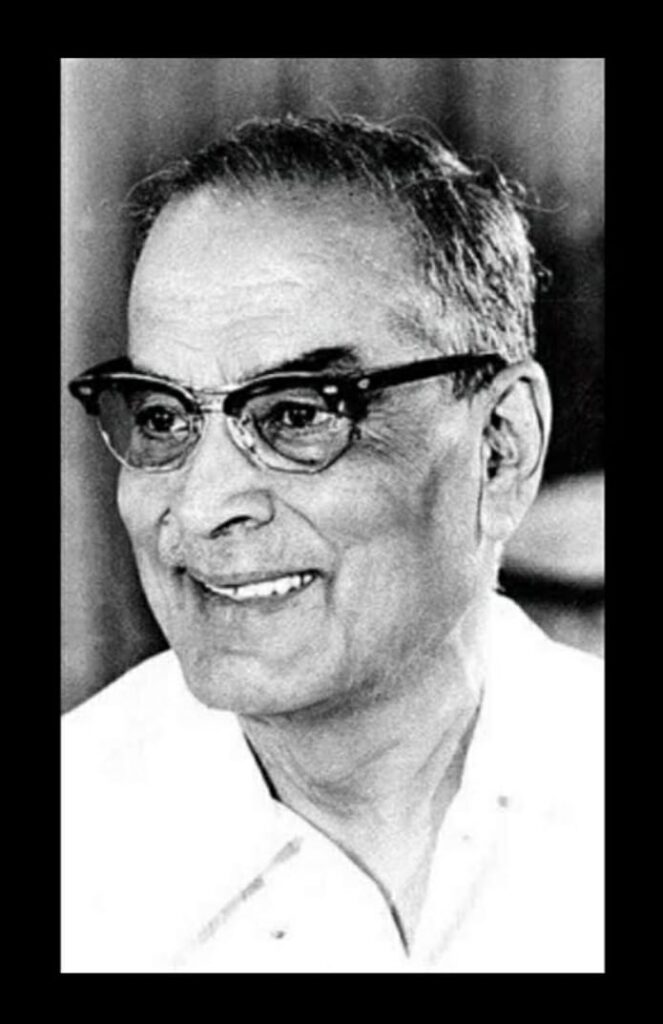
Voltaire, the French writer, said: “Men, who are occupied in the restoration of health to other men, by the joint exertion of skill and humanity, are above all the great of the earth”.
First of all, a happy doctors’ day to all the doctors out there in our country; we salute all our doctors, who left no stones unturned to protect us from the ill-grasp of the Covid-19. We celebrate National Doctor’s Day on July 1 each year, in honour of the birth and death anniversary of the great physician Dr. Bidhan Chandra Roy
In the obituary to Dr Bidhan Chandra Roy, the British Medical Journal wrote,
“… at his professional zenith, he may have had the largest consulting practice in the world, news of his visit to a city or even railway station bringing forth hordes of would-be patients.”
This shows the stature of this great man. He was born to a Bengali family in Patna and his parents were followers of the Brahma Samaj. Completing his high school education from Patna Collegiate School in 1897, Roy did his Intermediate in Arts (I.A.) from Presidency College, Calcutta and B.A. from Patna College with Honors in Mathematics. Then. he applied for admission to the Bengal Engineering College and the Calcutta Medical College. He was selected in both of the premiere institutes but he preferred to go in the Medical college. After graduating, he went to England where he joined the prestigious St Bartholomew’s Hospital in London. After his post-graduation in 1911, Dr Roy achieved a rare feat by becoming a Member of the Royal College of Physicians (MRCP) and a Fellow of the Royal College of Surgeons (FRCS). Then returning back to India Dr Roy served as Professor of Medicine, Fellow of the American Society of Tropical Medicine and Hygiene and Vice-Chancellor of the Calcutta University. He started the Indian Medical Association in 1928 and making it the largest professional organisation in the country. He also founded The Medical Council of India and he was its first president in 1939, a position he held till 1945.
Apart from being a doctor par excellence, Roy was a prominent national leader. The Hindu says, “Dr. B.C. Roy was one of the foremost national leaders of the 20th century. A legendary physician, distinguished political leader, philanthropist, educationist and social worker, he was one of the longest serving Chief Ministers and is rightly hailed as the Maker of Modern West Bengal.”
Dr. Roy led the Civil disobedience movement in Bengal and was later on elected as Mayor of Calcutta Corporation (1931-33). he also served as the Vice-Chancellor of Calcutta University (1942-44), President of the Medical Council of India (1939) and the Governor of the United Provinces (now Uttar Pradesh). Post-independence, Bengal was in a chaotic situation due to communal violence and the influx of refugees across a divided Bengal. On the request of Gandhiji, Roy took the charge of becoming the Chief Minister of West Bengal on 23 January 1948. He is still considered as the best C.M. of West Bengal. He was successful in restoring the law and orders of W.B. As a C.M he played an integral role in the establishment of medical institutions like Jadavpur T.B. Hospital, Chittaranjan Seva Sadan, Kamala Nehru Memorial Hospital, Victoria Institution (college), Chittaranjan Cancer Hospital and the Chittaranjan Seva Sadan for women and children. He even opened centres for women, where they could train in social work and nursing. He played a key role in establishing the Indian Institute of Mental Health, the Infectious Disease Hospital and the first-ever postgraduate medical college in Kolkata. He had a great vision for the future of West Bengal and thus he founded five well-planned cities namely Durgapur, Kalyani, Bidhannagar, Ashokenagar and Habra. In a nutshell, he was the greatest administrator of Bengal and the maker of Modern Bengal.
In 1961, he was honoured with the Bharat Ratna, the highest Civilian Award in our country. In his honour, the B.C. Roy National Award was instituted in 1976 for work in the area of medicine, politics, science, philosophy, literature and arts.
He died on 1 July 1962, in his 80th birthday. As per sources, “after treating his morning patients and discharging affairs of the State, he took a copy of the “Brahmo Geet” and sang a piece from it. 11 hours later Dr. Roy died at midday past three. He had gifted his house for running a nursing home named after his mother, Aghorkamini Devi. He had also constituted a trust for his properties at Patna to carry out social service, with eminent nationalist Ganga Sharan Singh (Sinha) being its first trustee.”
This was the greatness of Dr. Bidhan Chandra Roy.
Written by: Soumyanil Adhikary
Source:
Wiki, TOI, The Hindu